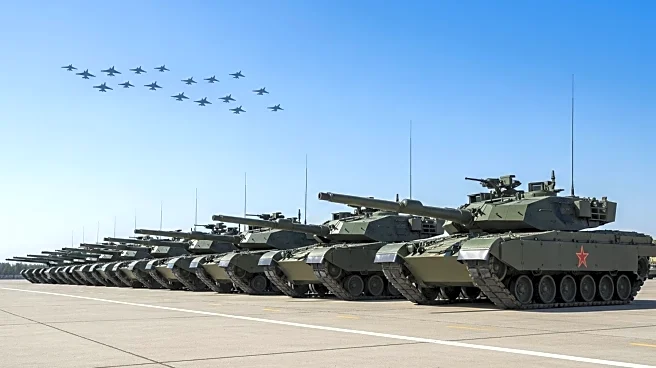What's Happening?
China showcased its military capabilities in a parade marking the 80th anniversary of the end of World War II. The event, held in Beijing, featured advanced weaponry such as aerial and underwater drones, hypersonic missiles, and fighter jets. Chinese President Xi Jinping, along with Russian President Vladimir Putin and North Korean leader Kim Jong-un, attended the parade. Xi emphasized China's resilience and strength, aiming to portray the nation as a global power capable of standing up to foreign pressures.
Why It's Important?
The parade serves as a strategic move by China to assert its military and political influence globally. By displaying advanced military technology, China aims to strengthen its position as a counterweight to U.S. dominance. The presence of leaders from Russia and North Korea signals a potential realignment of global alliances, challenging Western influence. This event may impact international relations, particularly in the Asia-Pacific region, where military tensions are already high.
What's Next?
China's demonstration of military strength may lead to heightened tensions with the United States and its allies. The gathering of leaders opposed to U.S. influence suggests possible shifts in geopolitical strategies. Observers will be watching for further diplomatic engagements and military developments as China continues to assert its role on the global stage.
Beyond the Headlines
The parade reflects broader geopolitical shifts, with China positioning itself as a counterbalance to Western influence. The event also highlights the cultural and historical significance of World War II in shaping national identity and political narratives. China's emphasis on military strength raises ethical questions about the balance between national security and global peace.








